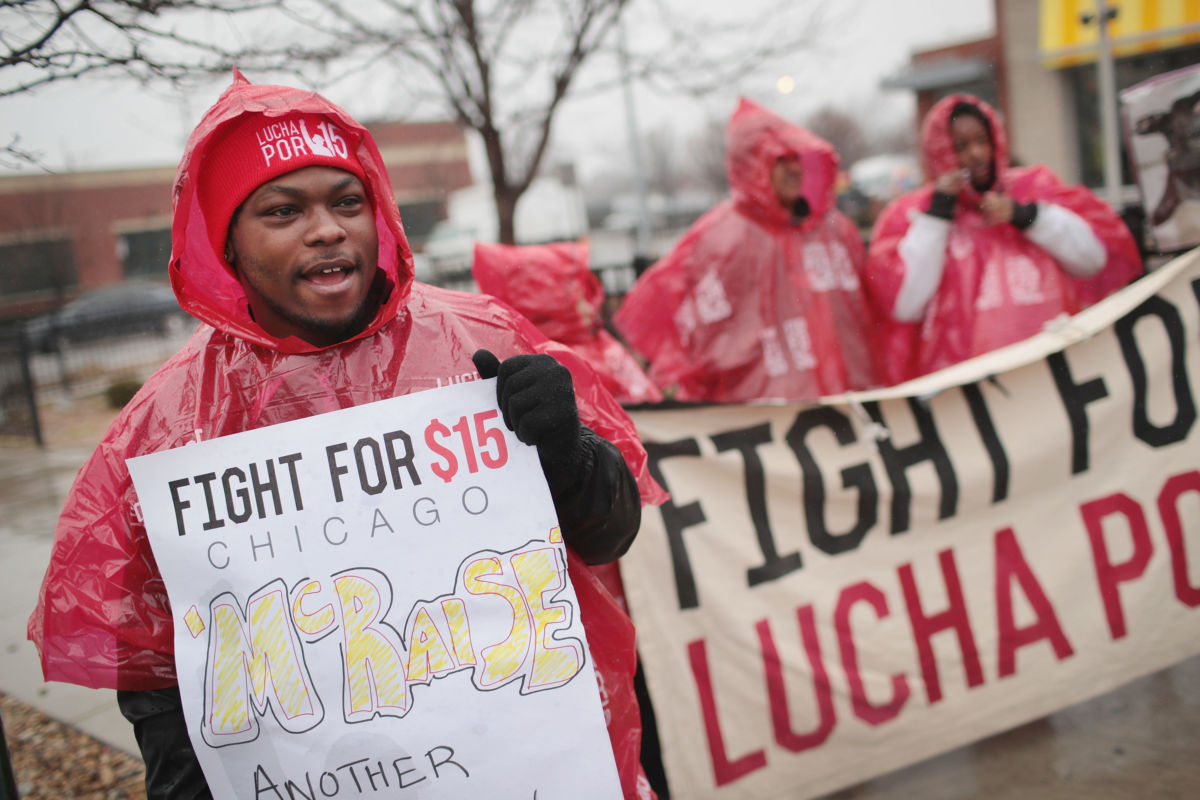Truthout is a vital news source and a living history of political struggle. If you think our work is valuable, support us with a donation of any size.
We were just handed a wake-up call. Newly released numbers from the U.S. Bureau of Labor Statistics project that six of the ten occupations expected to have the most total job growth over the next decade pay less than $27,000 a year. Three of those six are low-paying jobs in the restaurant industry. Even more striking is the concentration of low-paid healthcare jobs at the top of the list, with personal care aides at number one and home health aides at number four. These jobs are disproportionately held by women and by people of color.
The low earnings in these fast-growing jobs provide a grim glimpse into what the future of work in the United States will look like if nothing changes. But this future is not ordained. These jobs pay poorly because we allow it. Weak labor standards (such as a low federal minimum wage and weak overtime protections), weak enforcement of these standards, and labor law that does a poor job of protecting workers’ right to unionize, all mean employers have the power to suppress workers’ wages. This will continue to be the case unless we, as a society, make different choices — choices that empower workers and give them more power in their workplaces.
For those who might respond that these low-paid workers should just go to college to get a decent-paying job, the new BLS data has an answer for you. In 2028, only 27.2 percent of jobs will be in occupations where a college degree (or more) is typically required. In other words, even in nine years, a college degree won’t actually be required for a huge share of the jobs employers will need workers to do. If everyone gets a college degree, those non-college jobs will simply be filled by college grads. Put yet another way, college cannot solve this. Unless you’re willing to write off almost three-quarters of the labor market as undeserving of a decent job, we need another approach. We need to make sure even those 72.8 percent of jobs that don’t require a college degree are good jobs.
The good news is that we know how to do that. We must implement strong labor standards, strong enforcement of those standards, and reform labor law so that workers who want to join a union are able to do so. As we think about these different choices for our future, it’s worth noting that manufacturing jobs weren’t always good jobs — in fact, they were often terrible, and dangerous. Unionization changed that. Unionization could do that for the fast-growing jobs of the future, too.
A terrifying moment. We appeal for your support.
In the last weeks, we have witnessed an authoritarian assault on communities in Minnesota and across the nation.
The need for truthful, grassroots reporting is urgent at this cataclysmic historical moment. Yet, Trump-aligned billionaires and other allies have taken over many legacy media outlets — the culmination of a decades-long campaign to place control of the narrative into the hands of the political right.
We refuse to let Trump’s blatant propaganda machine go unchecked. Untethered to corporate ownership or advertisers, Truthout remains fearless in our reporting and our determination to use journalism as a tool for justice.
But we need your help just to fund our basic expenses. Over 80 percent of Truthout’s funding comes from small individual donations from our community of readers, and over a third of our total budget is supported by recurring monthly donors.
Truthout has launched a fundraiser to add 379 new monthly donors in the next 6 days. Whether you can make a small monthly donation or a larger one-time gift, Truthout only works with your support.
